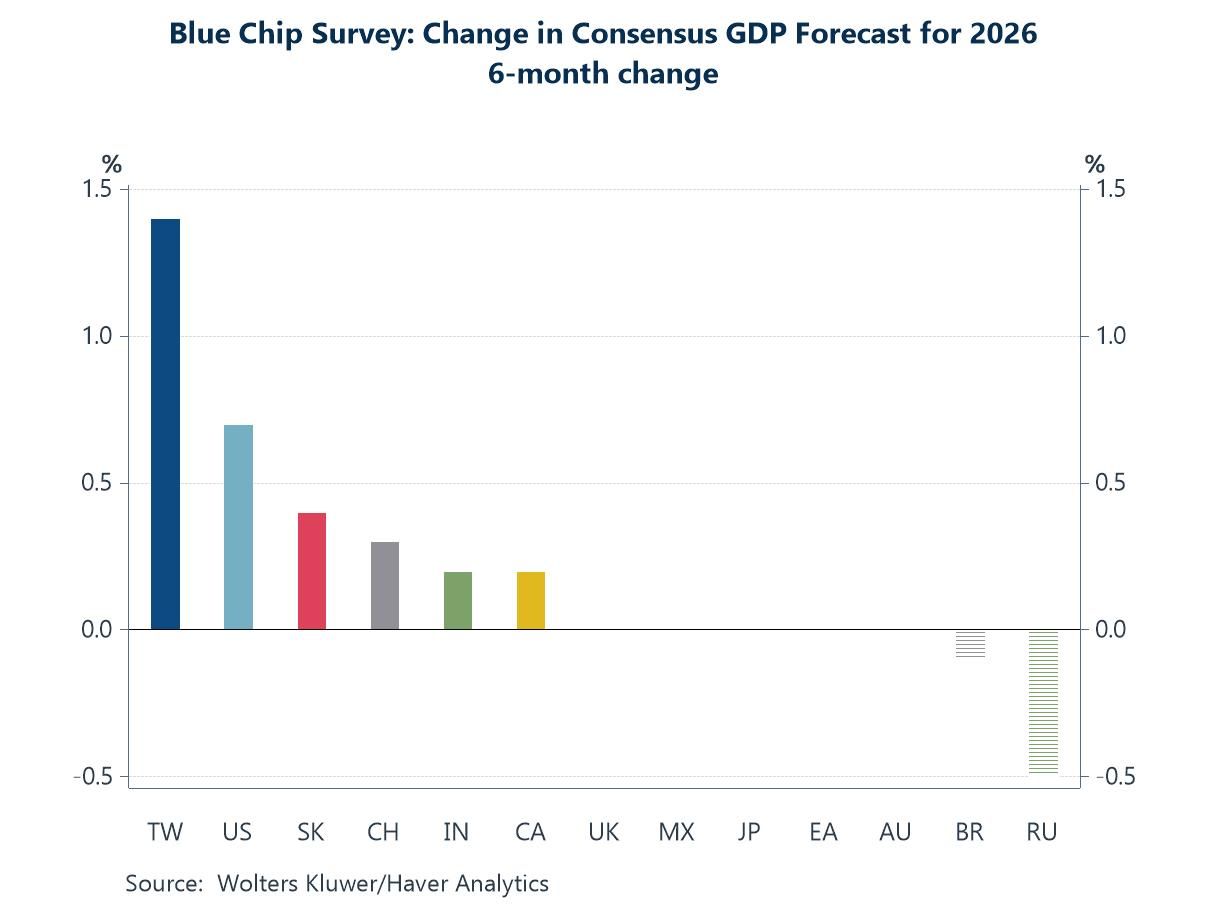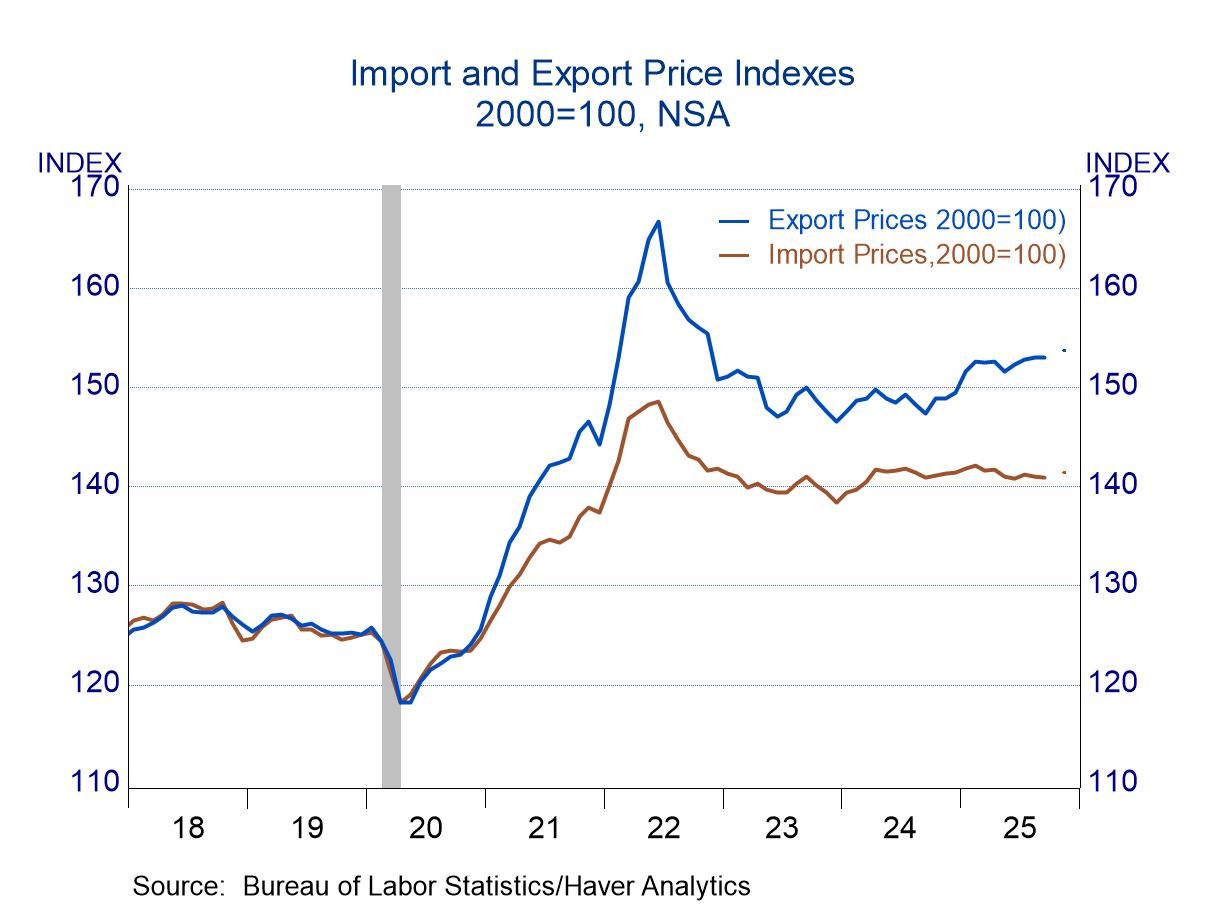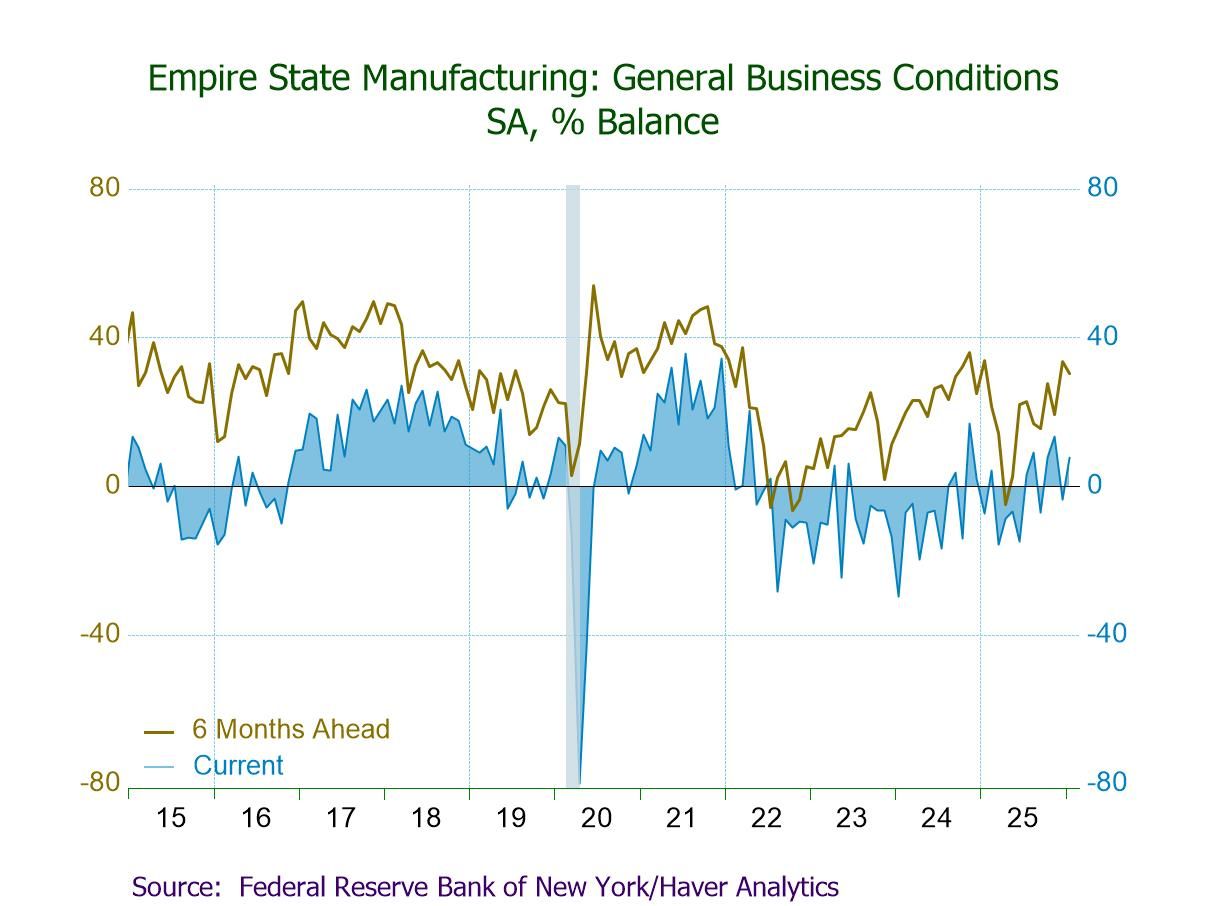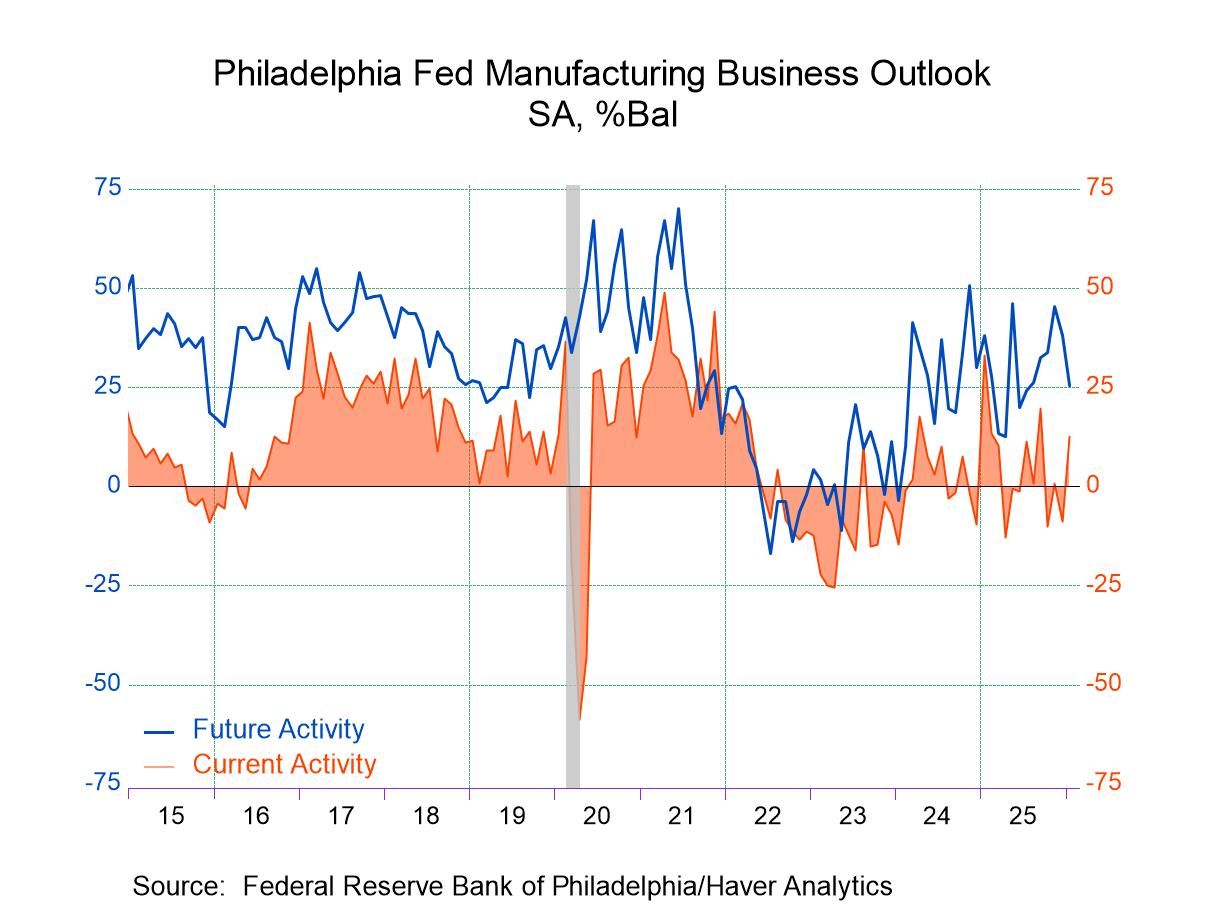 Global| Aug 03 2009
Global| Aug 03 2009German Retail Sales Take A Dive - Without The Swan
Summary
The FACT: German ex-auto retail sales fell sharply in June, the second sharp drop in a row after posting a strong gain in April. THE REVERSAL: After a terrible January German non-auto retail sales have been on a nice strong recovery [...]
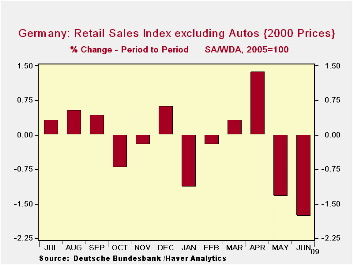
The FACT: German ex-auto retail sales fell
sharply in June, the second sharp drop in a row after posting a strong
gain in April.
THE REVERSAL: After a terrible January
German non-auto retail sales have been on a nice strong recovery path
as sales cut their decline of over 1% (m/m) in January to drop of -0.2%
in February then rose in March and rose strongly in April by 1.8%. That
was before this new episode in which they have posted back to back
large drops in May and in June.
THE IMPACT: Despite the disappointing
numbers in the last two months, earlier increases will hold retail
sales ex-autos flat in real terms; the nominal numbers will rise by
1.7% at an annual rate in Q2.
THE PARADOX: The retail sales report was a
bitter one for June and it comes in a day that Europe-wide and German
MFG PMI results we better-than-expected. The EMU report registered its
second highest month-to-month gain in its relatively modest history-
still an impressive jump. The German MFG reading rose to 45.7 on its
largest point gain ever, reaching a ten-month high, although still
indicating a declining state. All of that is impressive.
THE UPSHOT: So the day’s reports are mixed.
In Europe and in Germany manufacturing is making a strong step toward
recovery. Still, the level of the reading tells us that the strong
month-to-month improvement leaves industry output contracting. The
retailing sector that had begun to look like it was in a state of
repair is now looking much worse. While the quarter will not end too
badly for German retail sales that is because of past strength. The
recent collapse in retail sales should be a warning to policymakers
about complacency – even in the face of a manufacturing turnaround that
is in progress.
THE FUTURE: The new bout of retail weakness
puts retail sales in a deep hole from which to start off in 2009-Q3.
For example if German retail sales do not rise in July they will carry
a growth rate off the previous quarter of -6.4% at annual rate in Q3
over Q2. This is a big inherited weakness that is unlikely to spur any
increase in the output of consumer goods in Germany – setting aside the
auto sector where special incentives are having a positive impact. The
optimistic spin here is that all of consumer attention is going into
the auto incentives and that is leaving other retail behind. Things may
not be as weak as they seem by looking at non-auto retail sales alone.
That may be true, but that is only a matter of solace if attention and
spending in the non-auto sector turns up, because it is starting off Q3
in a really deep hole. The auto sales revival in Q2 will only make it
that much more difficult to get Q3 sales higher. In other words if the
auto incentives don’t stay in place and do not continue to have a
strong positive impact, German overall retail sales will become a heavy
negative weight on German GDP in Q3.
| German Real and Nominal Retail Sales | QTR | |||||||
|---|---|---|---|---|---|---|---|---|
| Nominal | Jun-09 | May-09 | Apr-09 | 3-MO | 6-MO | 12-MO | Year Ago | Saar |
| Retail Ex auto | -1.6% | -1.4% | 1.8% | -4.7% | -3.9% | -2.2% | 1.6% | 1.7% |
| Real | ||||||||
| Retail Ex auto | -1.8% | -1.3% | 1.4% | -6.9% | -5.5% | -1.9% | -1.7% | 0.0% |
Robert Brusca
AuthorMore in Author Profile »Robert A. Brusca is Chief Economist of Fact and Opinion Economics, a consulting firm he founded in Manhattan. He has been an economist on Wall Street for over 25 years. He has visited central banking and large institutional clients in over 30 countries in his career as an economist. Mr. Brusca was a Divisional Research Chief at the Federal Reserve Bank of NY (Chief of the International Financial markets Division), a Fed Watcher at Irving Trust and Chief Economist at Nikko Securities International. He is widely quoted and appears in various media. Mr. Brusca holds an MA and Ph.D. in economics from Michigan State University and a BA in Economics from the University of Michigan. His research pursues his strong interests in non aligned policy economics as well as international economics. FAO Economics’ research targets investors to assist them in making better investment decisions in stocks, bonds and in a variety of international assets. The company does not manage money and has no conflicts in giving economic advice.



